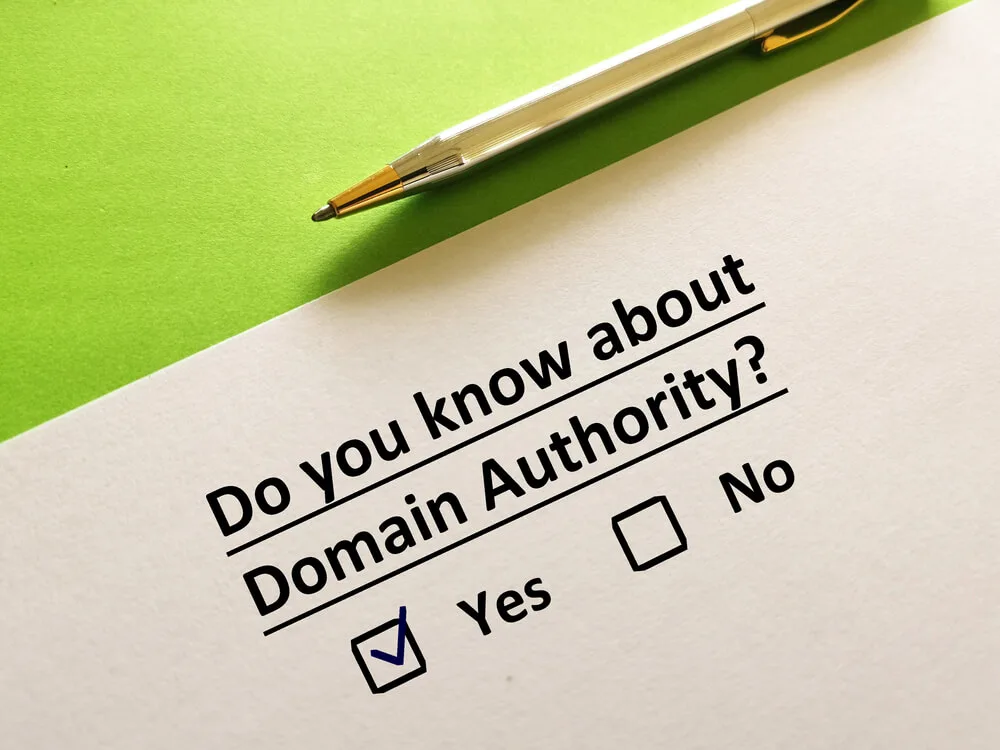Understanding Domain Authority: What is DA?
- SEO

There many metrics that measure the effectiveness of SEO and internet marketing in general. For small to medium-sized businesses it can be overwhelming trying to keep track of these metrics and understanding what is driving these numbers. Domain Authority is one metric Tower Marketing uses to measure SEO progress and success of a client’s website campaigns in comparison to competitors. DA looks at a variety of broad spectrums, taking into account many of the factors Google considers important.
What is Domain Authority?
Domain Authority (DA) is scored on a scale of 0-100 and was developed by the analytics software team Moz.com. The DA metric predicts how well a website will rank on search engines. You use DA when you’re comparing one site to another or tracking the “strength” of your website and content efforts over time.
Where did the Metric Domain Authority Originate From?
Domain Authority is comprised of several metrics that are calculated to show a picture of how well a domain is likely to have its pages ranked in Google’s search results (SERPs). It is based on data from the Mozscape web index and includes the total number of links, MozRank and MazTrust scores, and dozens of other factors outside of Moz. DA uses a machine-learning model to predictively find an algorithm that best correlates with rankings across thousands of search results that Moz predicts against.

Is Domain Authority a Stable Metric to Measure Against?
Yes, it is, but it is important to understand that the Domain Authority is affected by several organic factors that will always continue to fluctuate. DA is a slow-growing score because it is based on organic elements of marketing (unlike paid search which is almost instant).
Don’t expect to see your DA jump from 23 to 47 in just six months worth of SEO. There are too many factors involved to make the DA index move that fast.
How is Domain Authority Calculated?
Moz has calculated this metric by combining all other link metrics. These metrics include the number of domains linking to your site, number of pages linking to your site, number of total links (internal and external), ‘followed’ vs ‘nofollowed’ links (equity passing links) as well as MozRank, MozTrust, etc.—into a single score.
DA is heavily link-based, but it takes into account the quality of content and social linking signals too. So, why is there so much emphasis on links?
People link and share content they like. No one shares an ugly looking website or a website they can’t find. Links are still arguably the strongest signal of how popular a website and its pages are.

How Should Your Business Apply Domain Authority to Its Site?
As mentioned earlier, Domain Authority uses machine-learning. This helps it build up a better understanding of Google’s algorithm, which is constantly changing, so that it can best model how search engine results are generated.
There are over 40 signals included in the calculation of DA. This means your website’s Domain Authority score will often fluctuate. For this reason, it’s best to use Domain Authority as a competitive metric against other sites, as opposed to non-industry specific websites.
If your website content is education-related, don’t compare your DA against a sports website. Compare apples to apples and oranges to oranges, capiche?
Additionally, since it’s not a precise metric, it’s not the best data to measure the success of your internal SEO efforts with. Instead, you should look to other important engagement metrics to assess your efforts.
How is DA Scored?
The Domain Authority score ranges from 0 to 100 and is a logarithmic scale (non-linear scale for large ranges in quantities). Thus, it’s easier to grow your score from 20 to 30 than it would be to grow from 70 to 80. As your DA grows it will be harder to acquire more points.
How can Businesses Influence their own Domain Authority?
Unlike other SEO metrics, Domain Authority is difficult to influence directly. It is made up of an aggregate of metrics (MozRank, MozTrust, link profile, and more) and each have an impact on this score. This was done intentionally; this metric is meant to approximate how competitive a given site is in Google’s SERPs. Since Google takes a lot of factors into account, a metric that tries to calculate it must incorporate a lot of factors, as well.
The best way to influence this metric is to improve your overall SEO. In particular, you should focus on your link profile and getting more links from other well-linked-to pages that are relevant. Links from other websites act as a vote of endorsement. The more links for relative industries that have good quality content on their sites and that are active on social media, the greater the chances of your DA growing.
What is my DA Score?
There are free tools to find out what your DA is and also what your competitors are ranking at. Moz has created a toolbar for Chrome that you can download onto your browser. You will see a new menu above your navigation bar showing you the DA authority scores as well as some other handy metrics. Click here to download the MozBar.
Now that you have a better understanding of what DA is, what will you do to improve your score? Work with our expert team to grow your DA.
 Alex S
Alex S  Lauren
Lauren